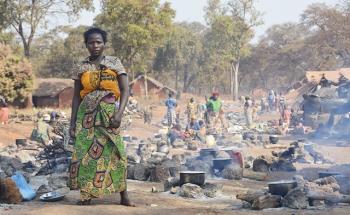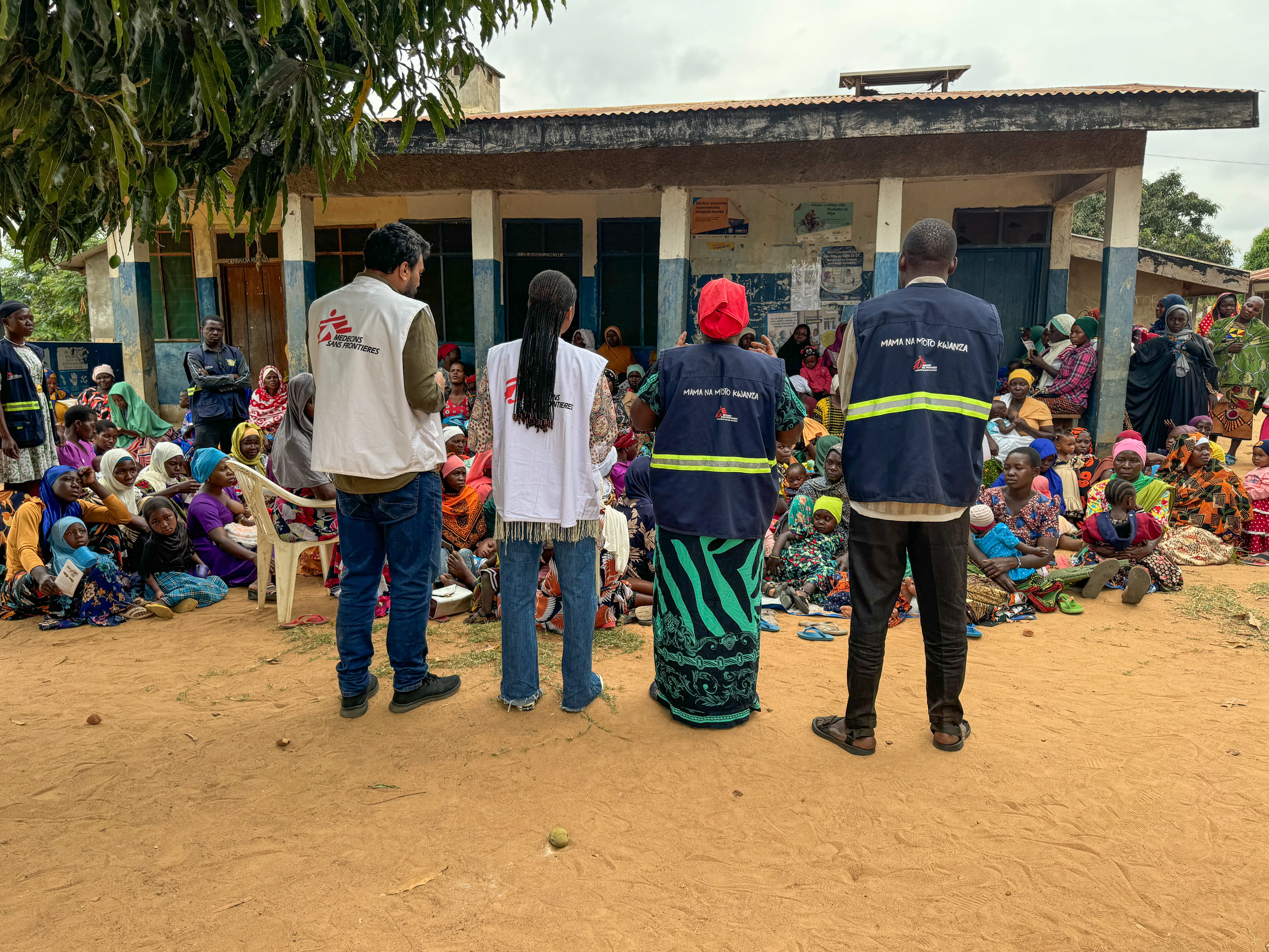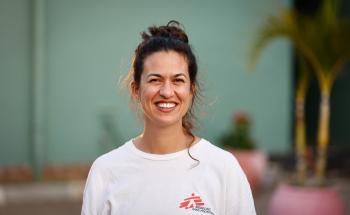
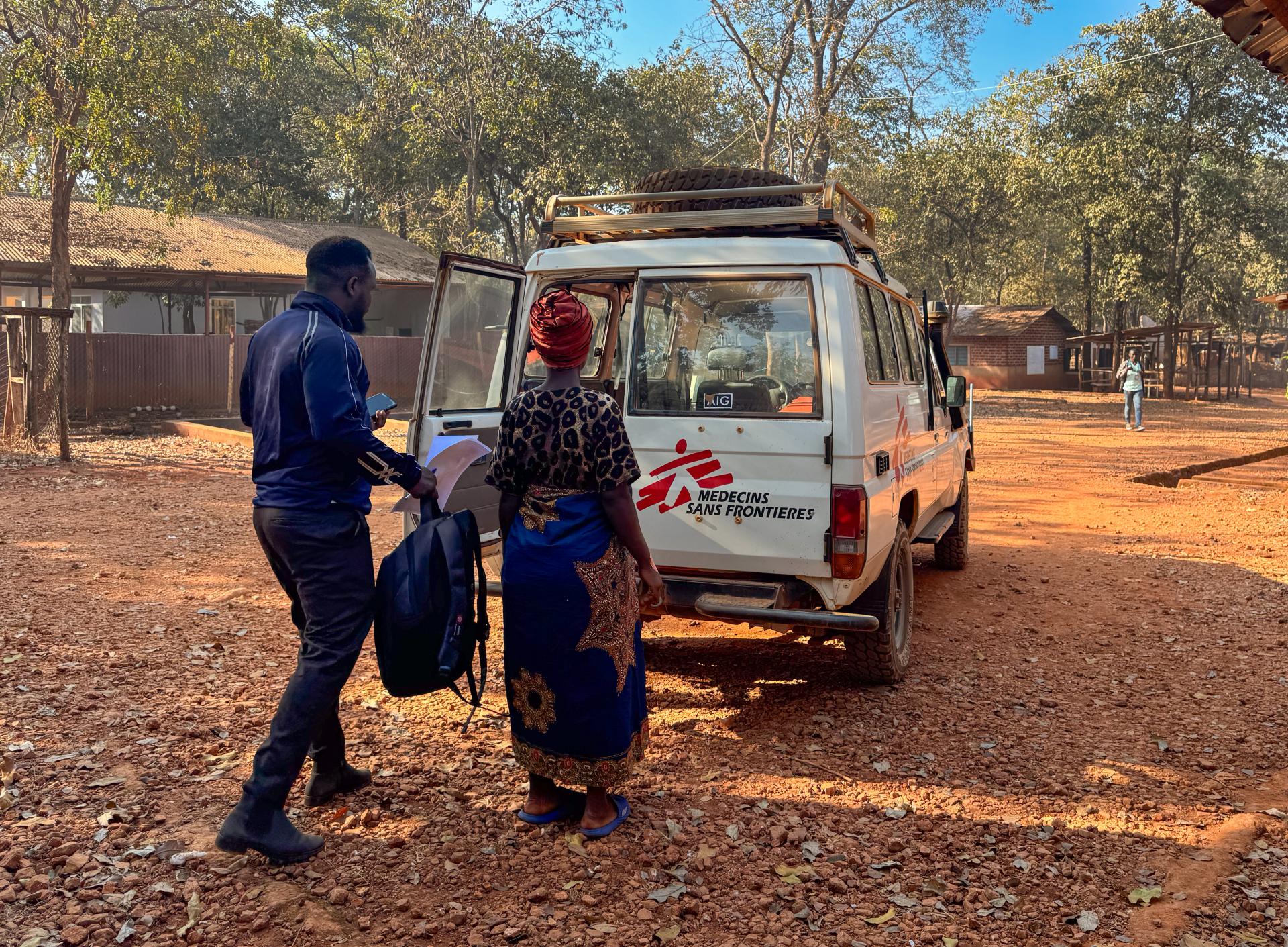
Tanzania
When violence broke out in Burundi in 2015, thousands of people fled over the border into Tanzania and sought refuge in Nduta camp.
Despite the authorities’ plans for the camp’s closure, we continued to deliver vital medical services to both the refugees and the local community in 2024, including malaria prevention activities, such as indoor residual spraying campaigns.
Featured
Our activities in Tanzania in 2024
Data and information from the International Activity Report 2024.
431
431
€8.4 M
8.4M
1993
1993
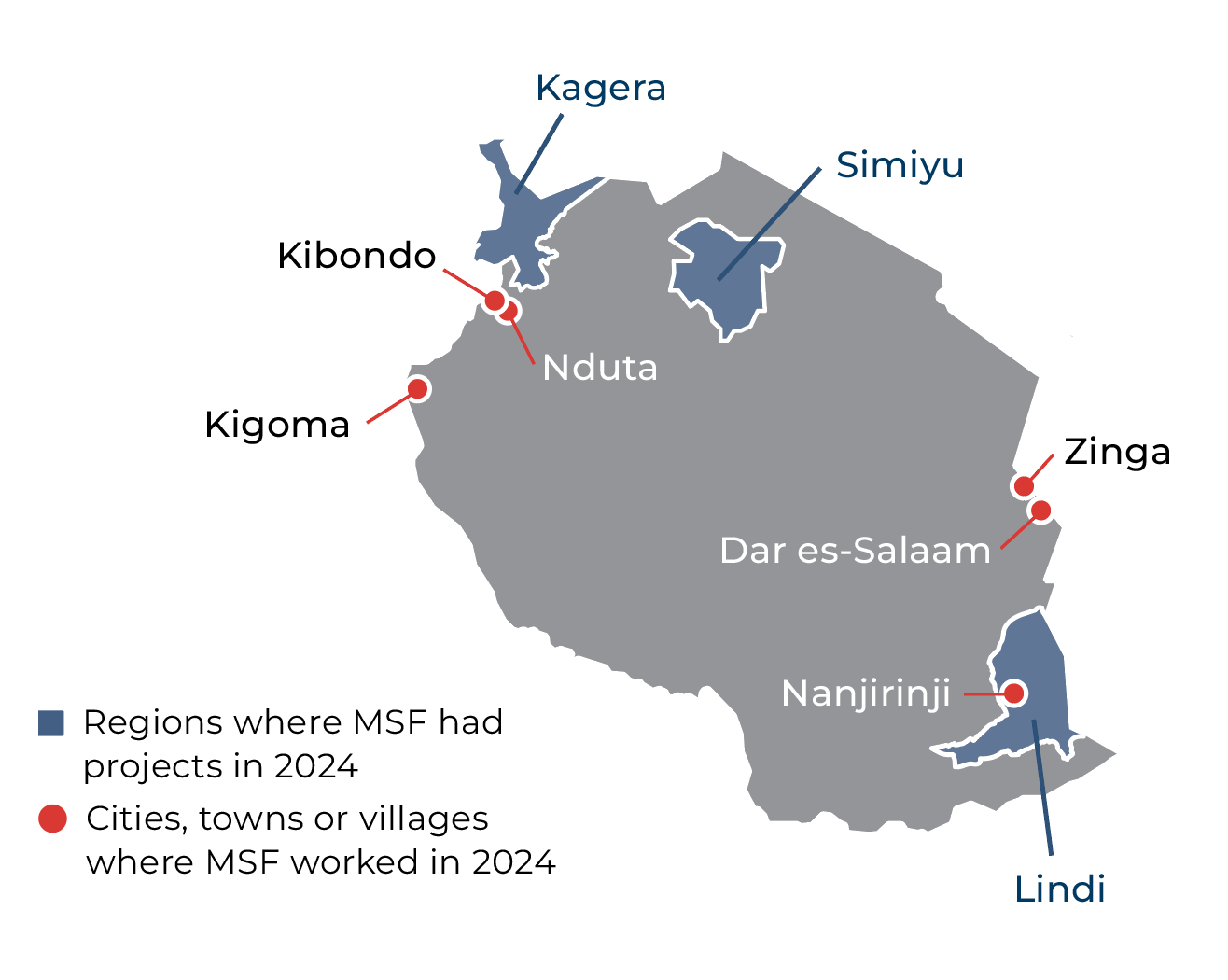
Elsewhere in the country, we supported the Ministry of Health’s responses to disease outbreaks, including three cholera responses launched in Lindi and Simiyu regions. In Kilwa district, our teams set up cholera treatment centres (CTCs) and supported the existing CTC in Itilima district. As well as improving the quality of care and the local capacity for early detection and surveillance, we referred suspected cholera cases to CTCs and oral rehydration points, strengthened community engagement and awareness, and helped with patient contact tracing.
During 2024, we also continued to run our project aimed at enhancing access to basic and specialised healthcare services, particularly for mothers and children, through seven public health facilities in Liwale, a southern region located near the border with Mozambique. To improve the referral network, particularly for patients living in remote and underserved areas, we provided two additional ambulances.

46,900
46,9
5,770
5,77
1,790
1,79

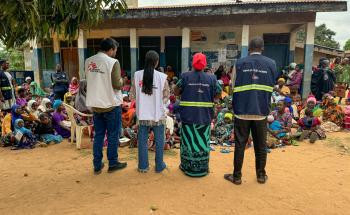
How a Home Away from Home Became a Lifesaver for Expectant Mothers in Tanzania
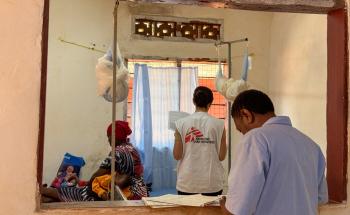
Enhancing Maternal and Neonatal Health Services to Save Lives in Tanzania
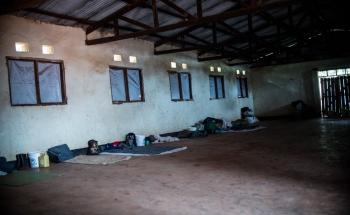
"This is where my life as a refugee began…" Barthelemy's story
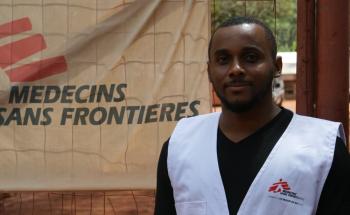
A day in the life of an MSF health promoter in times of COVID-19
